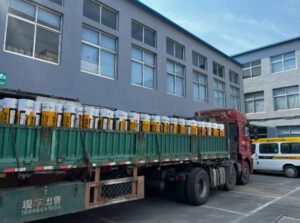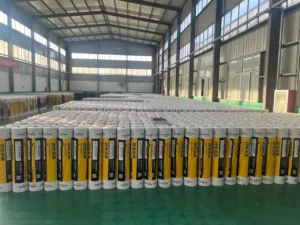If you want your roof to last years longer and shrug off everyday damage, start by adding a heavy-duty waterproof membrane . This tough layer stops rain, melted snow, and hidden humidity from slipping inside your building and sparing frames from rust, rot, and mold . Store aisles are packed with options, so picking the right sheet can feel like rolling dice every time . Use this pocket guide to steer your choice and give the roof the lasting armor it needs .
Importance of Roof Waterproof Membrane
Before diving into brands, stop and think about why that unseen shield is so important . The membrane sits just beneath the visible shingles or tiles and blocks every drop from reaching the roof deck . When that seal stays intact, rafters, insulation, and drywall remain dry and healthy, sparing you the shock of costly repairs . Putting in a trusted membrane now is always cheaper than chasing leaks later.
Types of Roof Waterproof Membranes
1. EPDM (Ethylene Propylene Diene Monomer)
EPDM stands for Ethylene Propylene Diene Monomer; think flexible rubber that stays tough and stretchy when temperatures swing wildly. It shrugs off UV rays, hail, and ozone damage, so roofs in harsh climates tend to outlive other options. Installers can glue, tape, or ballast the sheets on flat or gently sloped roofs in a heartbeat. Home desks, garden sheds, and sprawling warehouses all lean on EPDM because it does the job without breaking the budget.
2. TPO (Thermoplastic Olefin)
TPO roof membranes reflect brutal sunlight, helping buildings stay cooler and slashing air-conditioning costs. Made from rubber blended with ethylene and propylene, the seams resist tearing, punctures, and most harsh chemicals. The bright-white surface bounces hot rays away and protects the deck from UV wear at the same time. On sunny days owners quickly notice lower cooling loads because far less heat seeps inside.
3. PVC (Polyvinyl Chloride)
PVC (Polyvinyl Chloride) PVC roof sheets are remarkably tough, shrugging off chemicals, heat, and heavy foot traffic without breaking open. Heat-welded seams fuse the panels into a single shell that stops rain from creeping under any joint. Their fire rating and wind-draft fortitude make them a natural fit for factories, labs, and other harsh worksites. Because the sheets can be recycled into fresh material, green-minded managers often give PVC an extra look.
4. Modified Bitumen
Modified Bitumen Modified-bitumen membranes blend asphalt with APP or SBS, so they bend instead of shattering as temps swing. This stretch makes them easy to fit around turrets, dormers, and parapet walls that refuse straight lines. Crews can torch, cold-glue, or self-stick the rolls, delivering speedy, solid cover even over tired old roofs. The end product is a tough, low-maintenance skin that stands up to foot traffic and seals tight against leaks.
Factors to Consider When Choosing a Waterproof Membrane
When selecting a waterproof membrane for your roof, several factors should be taken into consideration:
- Climate Conditions: Choose a membrane that can withstand the specific weather conditions in your area, whether it’s extreme heat, cold, or humidity.
- Durability: Opt for a membrane with a long lifespan to ensure lasting protection for your roof.
- Installation Method: Consider the complexity of installation and choose a membrane that aligns with the expertise of your roofing contractor.
- Energy Efficiency: Select a membrane that offers energy-saving benefits, such as heat reflectivity or insulation properties.
- Maintenance Requirements: Evaluate the maintenance needs of different membranes and choose one that fits your maintenance capabilities.
Spending some cash on a first-rate, waterproof roof membrane is one of the quickest ways to stop leaks before they start, and it can stretch the lifespan of your roof by several years. Choose the layer that fits your site conditions and budget, and you get dependable defense plus the peace of mind that comes from knowing your money is well spent. Whether you pick EPDM, TPO, PVC, or modified-bitumen membranes, each brings unique strengths that ramp up durability and service life. Do your homework, talk things through with roofing pros, and settle on the system that really suits your buildings waterproofing needs.
For more information or to inquire about our waterproofing solutions and waterproof floor paint products, feel free to get in touch with us. We’re here to help!
- Phone: +86 138 6365 6701
- Email: Huafengwaterproof@gmail.com
- WhatsApp: +86 138 6365 6701
We look forward to assisting you with all your waterproofing needs!








